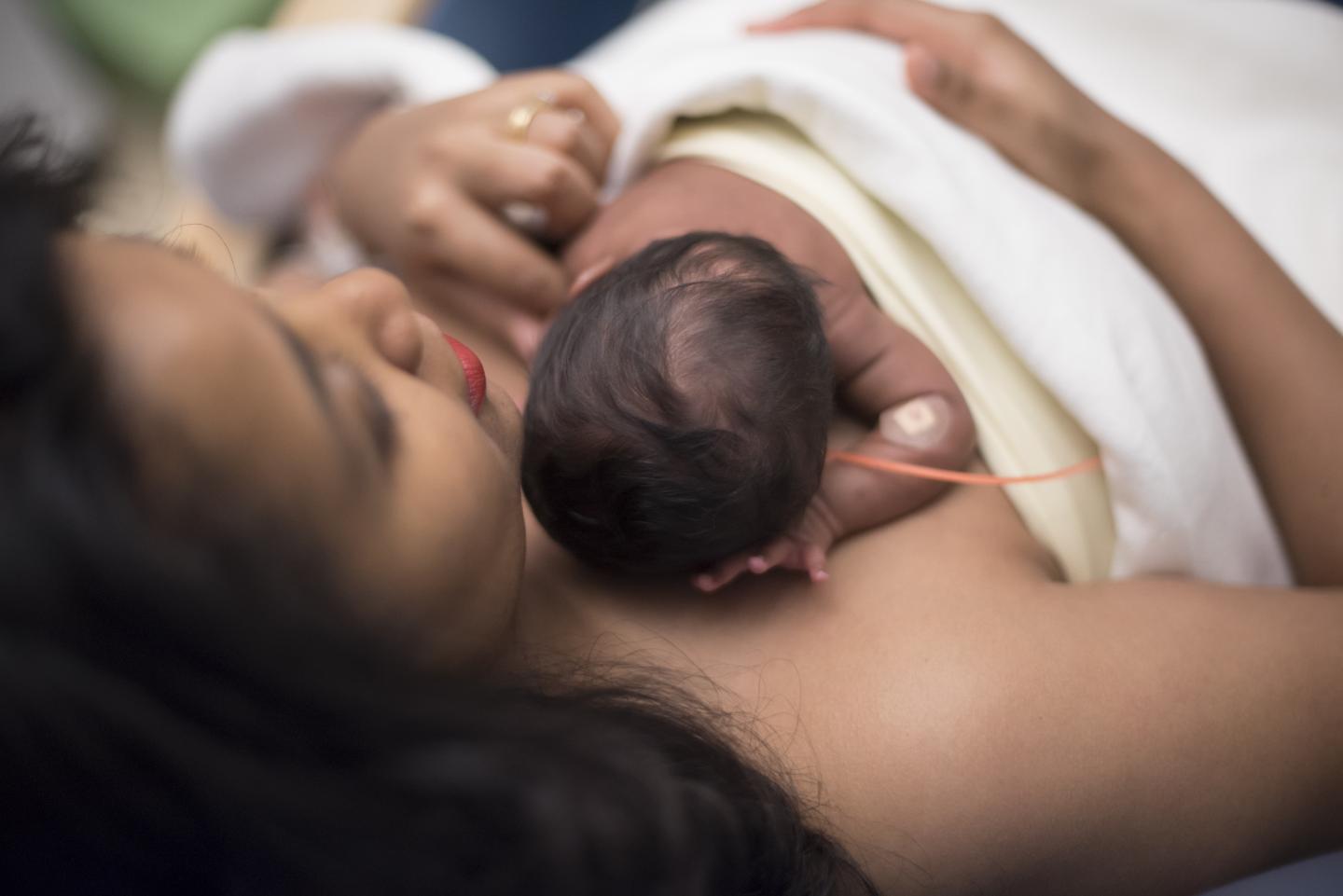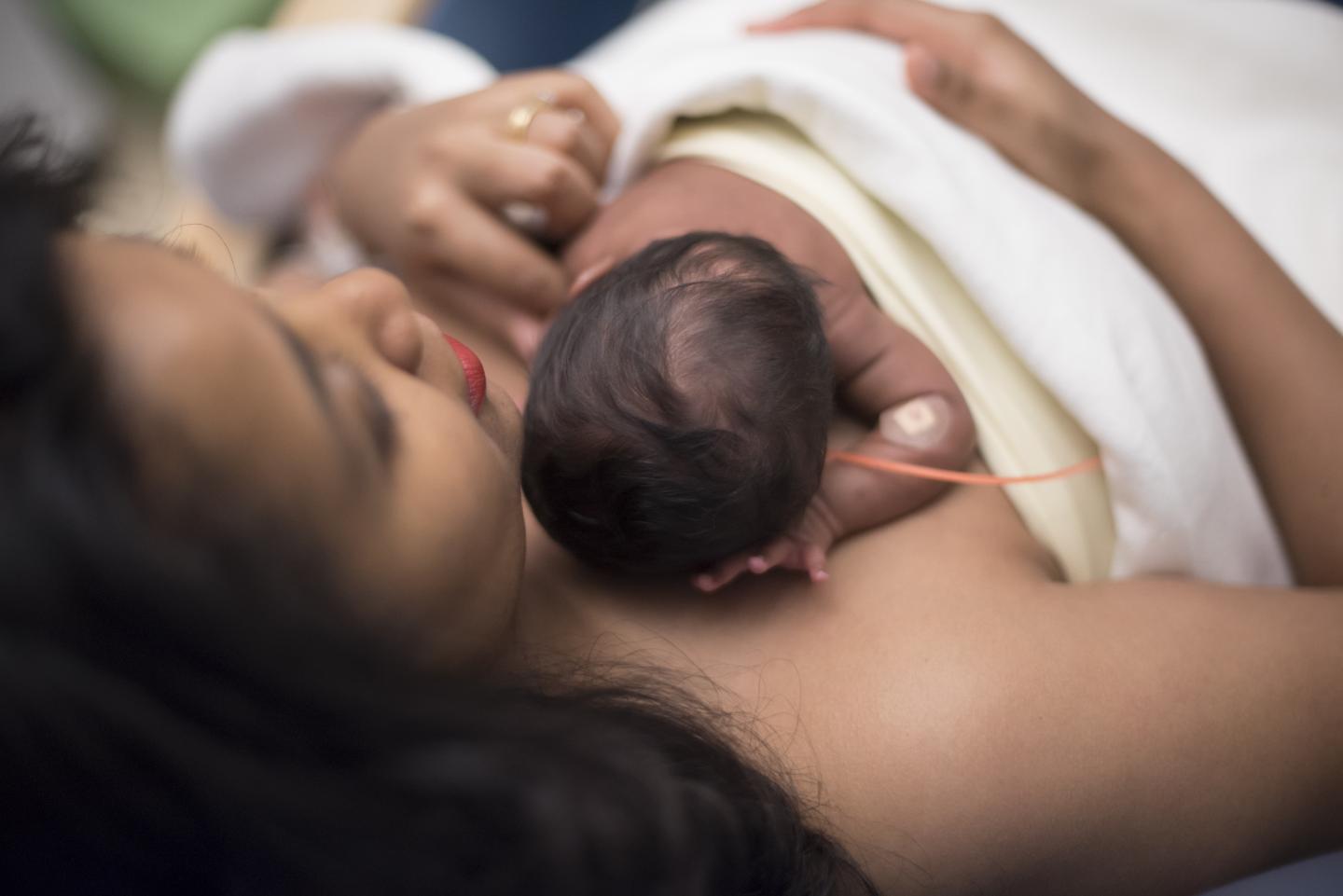
Credit: Children's National Health System
ORLANDO, Fla.-(Nov. 5, 2018)-Parents of vulnerable newborns in neonatal intensive care units (NICUs) who feel less resilient may experience more symptoms of psychological distress, including depression and anxiety. A snapshot from an ongoing cross-sectional study exploring this relationship was presented during the American Academy of Pediatrics (AAP) National Conference & Exhibition. Preliminary findings suggest that involving these parents in interventions that bolster resilience, such as kangaroo care, may help them to better contend with psychological distress related to their child being in the NICU.
Resilience is the remarkable ability of some people to bounce back, overcoming stress, trauma and adversity–including the stress associated with parenting a newborn born preterm. According to the Centers for Disease Control and Prevention, 1 in 10 U.S. infants was born preterm in 2016.
"Oftentimes, parenting a child in the NICU can be a time of crisis for families," says Ololade A. Okito, M.D., FAAP, a Neonatal-Perinatal Medicine Fellow at Children's National Health System who presented the preliminary study results during the 2018 AAP conference. "Studies have indicated a relationship between higher resilience and a reduction in psychological stress in other groups of people. However, it was unclear whether that finding also applies to parents of infants in the NICU."
Because parental psychological distress can impact the quality of parent-child interactions, the Children's research team wants to evaluate the relationship between resilience and psychological distress in these parents and to gauge whether activities that parents themselves direct, like the skin-to-skin contact that accompanies kangaroo care, helps to bolster resiliency.
So far, they have analyzed data from 30 parents of preterm infants in the NICU and used a number of validated instruments to assess parental resilience, depressive symptoms, anxiety, NICU-related stress and perceived social support, including:
- the Connor-Davidson Resilience Scale
- Edinburgh Postnatal Depression Scale
- State-Trait Anxiety Inventory Form
- Parental Stressor Scale: Neonatal Intensive Care Unit and
- the Multidimensional Scale of Perceived Social Support.
The infants were born at a mean gestational age of 29.2 weeks. When their newborns were 2 weeks old:
- 44 percent of parents (16 of 30) reported higher resilience
- 37 percent of parents (11 of 30) screened positive for having elevated symptoms of depression and
- 33 percent of parents had elevated anxiety scores.
"These early findings appear to support a relationship between low parental resilience scores and higher scores for depression, anxiety and NICU-related stress. These same parents were less likely to participate in kangaroo care and had lower social support. By contrast, parents who had more social support – including receiving support from family, friends and significant others – had higher resilience scores," says Lamia Soghier, M.D., FAAP, CHSE, Medical Unit Director of Children's Neonatal Intensive Care Unit and senior study author.
The study is an offshoot from "Giving Parents Support (GPS) after NICU discharge," a large, randomized clinical trial exploring whether providing peer-to-peer parental support after NICU discharge improves babies' overall health as well as their parents' mental health. The research team hopes to complete study enrollment in early 2019.
###
American Academy of Pediatrics National Conference & Exhibition presentation
Saturday, Nov. 3, 2018
- "Parental resilience and psychological distress in the neonatal intensive care unit (PARENT) study." 9:50 a.m. to 10 a.m. (ET)
Ololade A. Okito, M.D., FAAP, Neonatal-Perinatal Medicine Fellow and presenting author; Yvonne Yui, M.D.; Nicole Herrera, MPH, Children's Research Institute; Randi Streisand, Ph.D., Chief, Division of Psychology and Behavioral Health; Carrie Tully, Ph.D.; Karen Fratantoni, M.D., MPH, Medical Director of the Complex Care Program; and Senior Author, Lamia Soghier, M.D., FAAP, CHSE, Medical Unit Director, Neonatal Intensive Care Unit; all of Children's National Health System.
Media Contact
Diedtra Henderson
[email protected]
443-610-9826
http://www.childrensnational.org/





